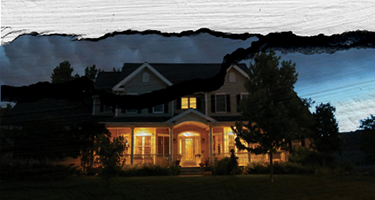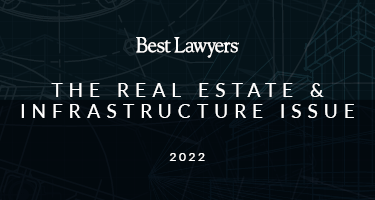Editor’s note: This article is Part 2 of a two-part series from the authors examining some of the many legal questions and considerations raised by the global pandemic for co-op, condo, and HOA boards, as well as landlords and building owners. Click here to read Part 1: https://cooperator.com/article/residential-building-laws-the-covid-19-pandemic
Among the many complex questions raised by the ongoing coronavirus pandemic are those that lie at the intersection of personal privacy rights and the right of individuals to information they can use to protect their health and that of their families. With accurate information and clear, consistent communication so crucial in the fight against COVID-19, multifamily boards and managers are faced with a legal dilemma: risk claims of privacy violation by disclosing information about individual residents’ health, or risk claims of negligence for not informing their constituents of infections within their building or HOA. With residents understandably concerned about both their privacy and their safety, the pressure on boards and managers is acute. Given the stakes, it’s important to understand both the extent and limitations of what boards can mandate in their communities, and make decisions based on the law, rather than misinformation or personal preference.
LEGAL FACTS & BOARD OBLIGATIONS
While much of the guidance around staying home, social distancing, and wearing masks has been presented in the form of ‘recommendations’ or ‘strongly suggested,’ the fact is that occupants of New York City buildings who are infected with the coronavirus and who do not self-quarantine under the existing social distancing rules and guidelines may be subject to mandatory quarantine under NYC Administrative Code §17-104, which spells out measures to prevent the spread of disease.
According to NYC Administrative Code, §17-106, If a person who is “apparently or presumably sick of any communicable disease,” but refuses to self-quarantine is reported to the New York City Department of Health, that person is subject to inspection by “any officer or employee of the department,” and could then potentially be subject to detention in a public hospital. (See City of New York v. Mary Doe, 205 AD2d 469, 614 NYS2d 8 [1st Dept. 1994], which held that a patient’s multidrug resistant tuberculosis could not be treated and public health protected by less restrictive means.)
Buildings should report all known residents who are “apparently or presumably” infected with COVID-19 but who fail to self-quarantine either to the Department of Health — by calling 311 — or report to their local police precinct. In such cases, landlords or boards who either negligently or intentionally fail to make the required report could not only be subject to penalties for violating the New York City health code, but could also be subject to possible damage claims by other persons within the building who become infected as a result.
TO DISCLOSE, OR NOT DISCLOSE?
To be clear: there is no law requiring COVID-19-infected residents to advise their board or building management of their condition, so long as the infected residents self-quarantine in accordance with mandated social distancing rules and guidelines. That said, as a matter of prudence building owners and managers should protect the confidential health status of any residents who are known to be infected, but who are also complying with self-quarantine requirements.
According to the case of Doe v. City of New York, 15 F3d 264, 267 (2d Cir. 1994), “Information about one’s body and state of health is matter which the individual is ordinarily entitled to retain within the ‘private enclave where he may lead a private life’” and which is recognized as matter “the dissemination of which one would prefer to maintain greater control over.”
Aside from the non-disclosure protections given to certain medical records provided for under Public Health Law §§2782(k) and 2785, and under the Mental Hygiene Law §33.13, New York State does not constitutionally or statutorily protect a “right of privacy” when it comes to a person’s interest in keeping his or her health status confidential.
What New York’s “Right of Privacy” statute (Civil Rights Law, §§50, 50-c) does do is protect a living person’s “name, portrait or picture…” from disclosure “for advertising purposes, or for purposes of trade” only, “without having first obtained the written consent of such person.”
That said, there is a federal constitutionally protected “zone of privacy” — perhaps more accurately described as “a right to ‘confidentiality’” — that protects a person’s “interest in avoiding public disclosure of personal matters,” which may be required to be reported to governmental authorities, see, e.g., Whalen v. Roe, 429 US 589, 599 (1977), but where the governmental authority publicly discloses the sensitive personal health information, even where that health information is otherwise required to be disclosed by law. This federally protected “right to confidentiality” is separate and apart from the protections provided under the more well-known Health Insurance Portability and Accountability Act of 1996 (HIPAA), which mandates that healthcare providers and insurance companies maintain confidentiality and not disclose a person’s health information.
Whether or not this federal, constitutionally protected “right to confidentiality” could be extended to protect self-quarantined COVID-19 patients from having their condition disclosed to their neighbors by the managers of their buildings is an open question. Accordingly, whether a landlord, co-op/condo board, or their respective property managers may lawfully disclose the identity of an individual person infected with the coronavirus to other residents in their building is presently undetermined.
However, there appears to be general consensus among real estate attorneys that management may disclose the fact that persons infected with COVID-19 are residing in the building, but should not identify specific infected individuals. There is no general consensus on whether buildings should identify, say, the floor on which an infected resident lives. For our part, we believe that those in close proximity to a diagnosed person must know the unit number that the person lives in to ensure that uninfected neighbors are taking extra precautions to avoid catching the coronavirus themselves. Otherwise, buildings may open themselves to negligence claims.
At the same time, and to the greatest degree possible, those responsible for the management of rental buildings, condos, and co-ops should respect and maintain the confidential health information of all of their residents’ who are complying with the mandated governmental social distancing rules — including self-quarantine where that applies. In some cases, the managers of buildings with residents known to have tested positive for COVID-19 but who refuse to self-quarantine have issued advisories to community members, letting them know that there are residents in their building who are violating the law by not complying with the orders to self-quarantine — but without identifying non-compliant individuals by name.
NO EASY ANSWERS?
Nevertheless, as previously noted, it is important to keep in mind that while disclosing a COVID-positive resident’s health status to his or her neighbors may result in claims of privacy violation, management may also run the risk of violating the law by not reporting such individuals to the Health Department. Our firm recently started an emergency action in New York State Supreme Court against a resident for their refusal to follow the governor’s executive order mandating social distancing inside the building.
Finally, it should also be noted that, aside from management’s obligation to report any COVID-positive residents who either fail or refuse to self-quarantine, management would be wise to not implement or take any action that treats an infected resident differently from his or her neighbors. Persons with communicable or contagious diseases are deemed handicapped or disabled persons under federal law. Therefore, treating persons infected with a disabling communicable disease in a discriminatory fashion because of that disease would violate the federal Fair Housing Act (FHA), 42 USC §3604(f)(1)(B). Both New York State and New York City civil rights statutes also prohibit discrimination “against any person because of . . . disability . . . in the terms, conditions or privileges of the sale, rental or lease of any . . . housing accommodation or in the furnishing or facilities or services in connection therewith.” New York Executive Law §296(5)(a)(2); New York City Administrative Code, Title 8, Civil Rights, §8-107(5)(1)(a)(b).(Emphasis added).
In addition, without an order from a governmental agency permitting a given tenant’s exclusion from his residence, any action a landlord might take to evict a tenant after the end of the current eviction freeze for having been infected would violate New York City Administrative Code §26-521, which pertains to unlawful eviction and makes it “unlawful for any person to evict or attempt to evict an occupant of a dwelling unit who has lawfully occupied the dwelling unit for 30 consecutive days . . .except to the extent permitted by law.” See Daniels v. Christofoletti, 143 Misc.2d 857, 542 NYS2d 482 (NYC Civil Court, Queens County 1989).
As the legal and ethical ramifications of this once-in-a-century event continue to emerge, it’s crucial that landlords, managers, and co-op and condominium boards stay in close contact with their legal counsel, and avoid acting on fear or impulse. Striking a defensible balance between transparency and discretion can be challenging in the best of times; add in a global public health crisis, and the stakes are increased substantially. While in some cases there may seem to be no good answer to the dilemmas facing multifamily owners and administrators, sound, professional legal guidance can help guide your community during this trying time.
Adam Leitman Bailey is the founding partner of New York City-based law firm Adam Leitman Bailey, P.C., and John M. Desiderio is a partner with the Firm’s Real Estate Litigation Group. This advisory is offered as a service to clients and friends of Adam Leitman Bailey, P.C. and The Cooperator and is intended as an informal summary of certain recent legislation, cases, rulings and other developments. This advisory does not constitute legal advice or a legal opinion and is not an adequate substitute for the advice of counsel.

























